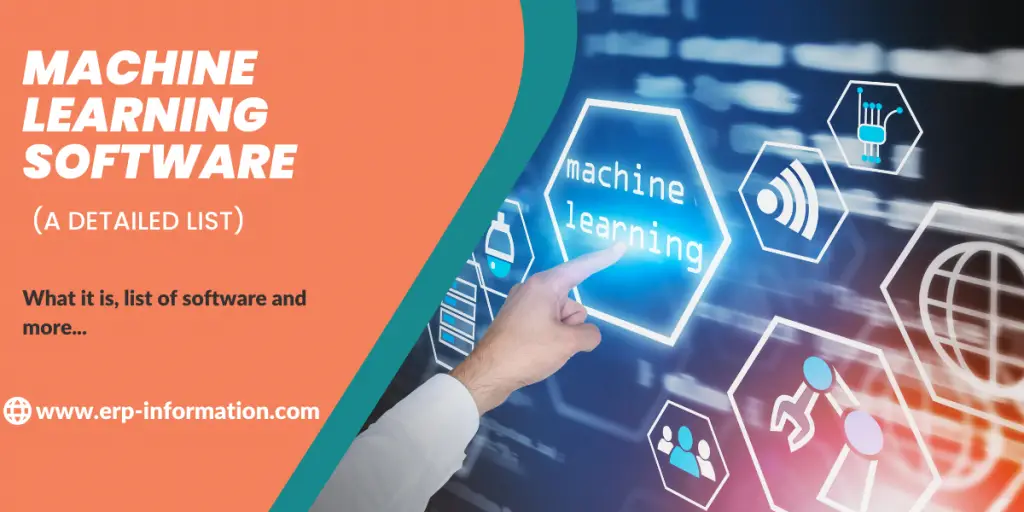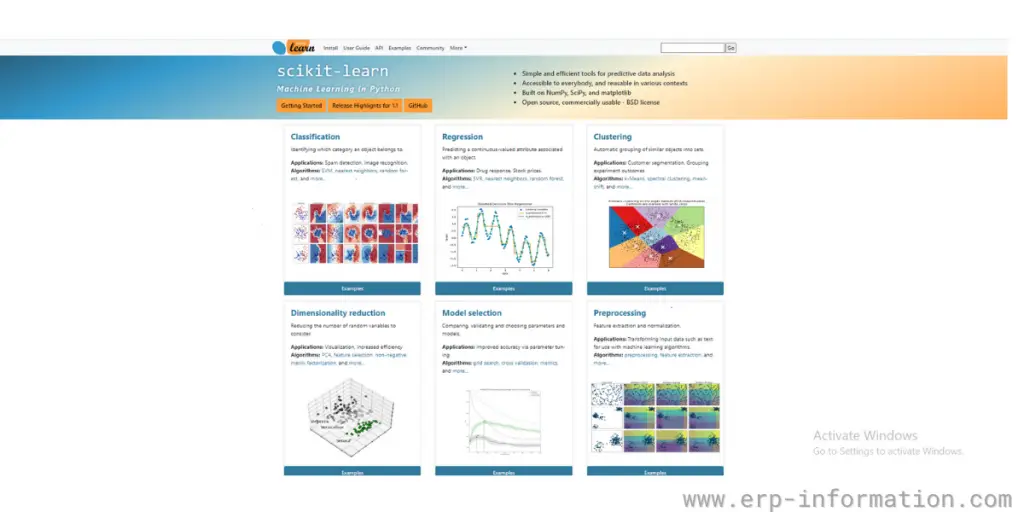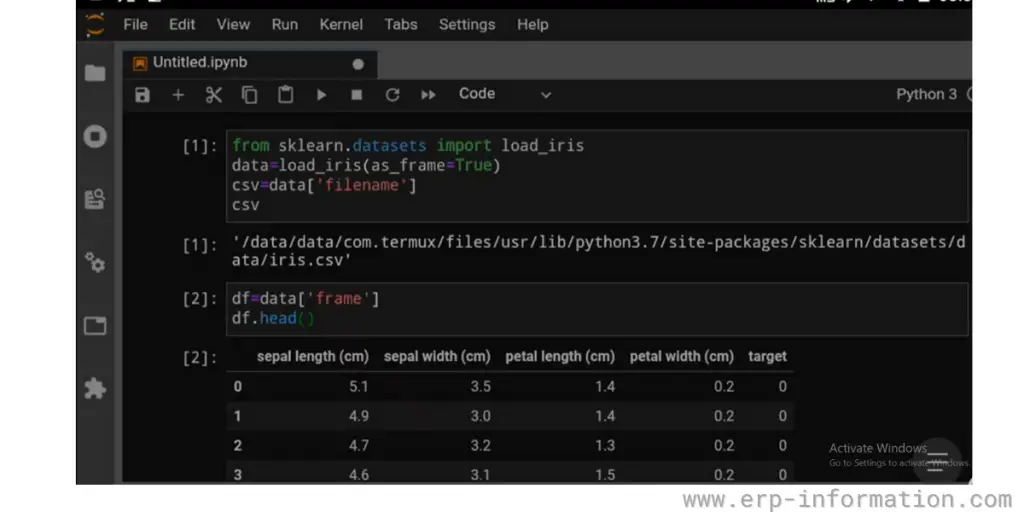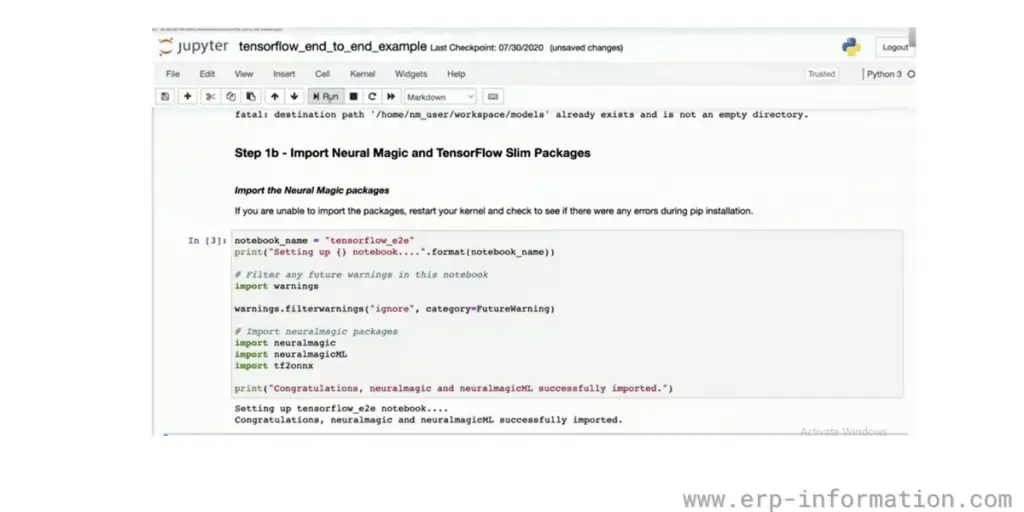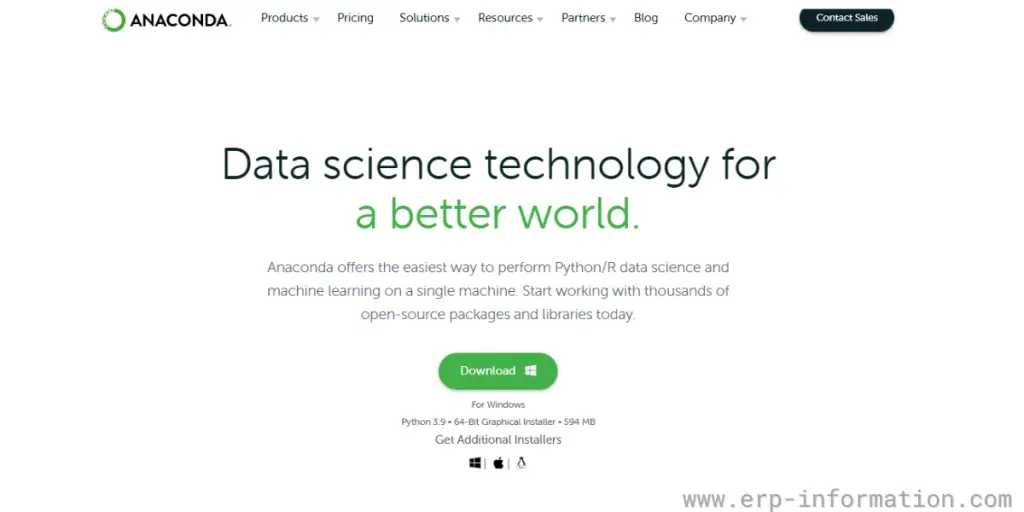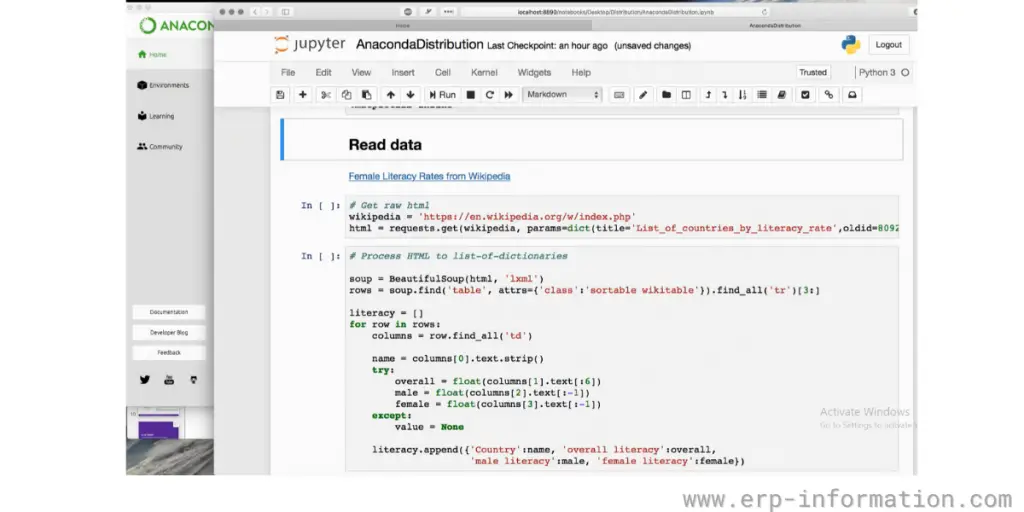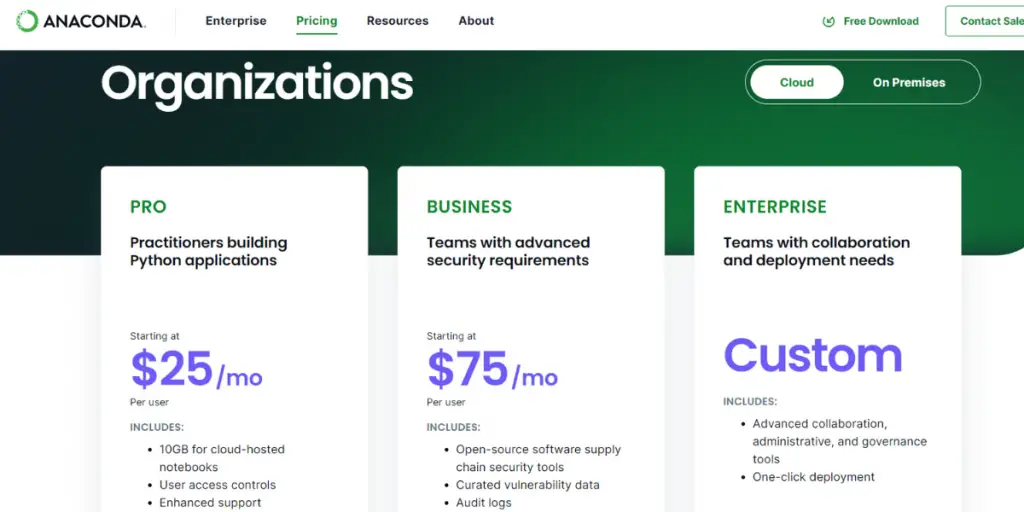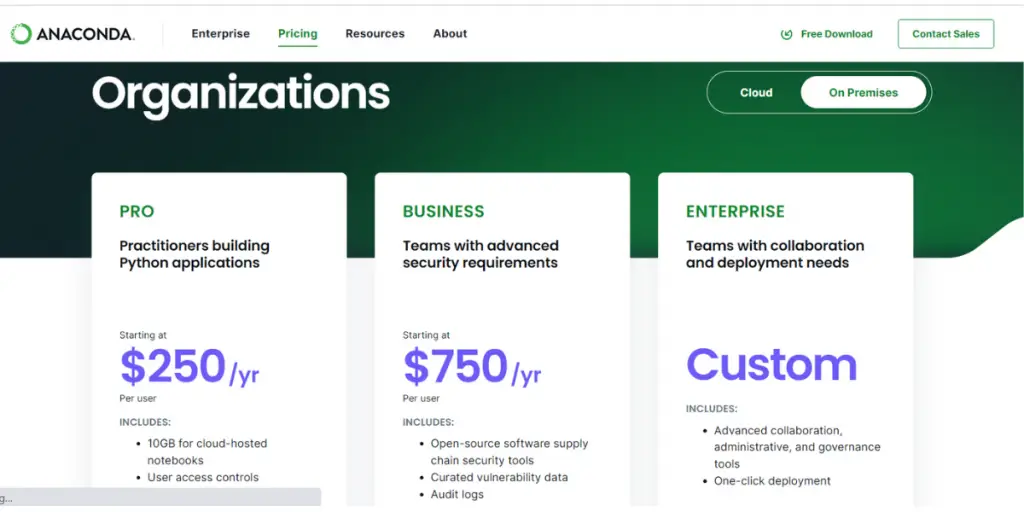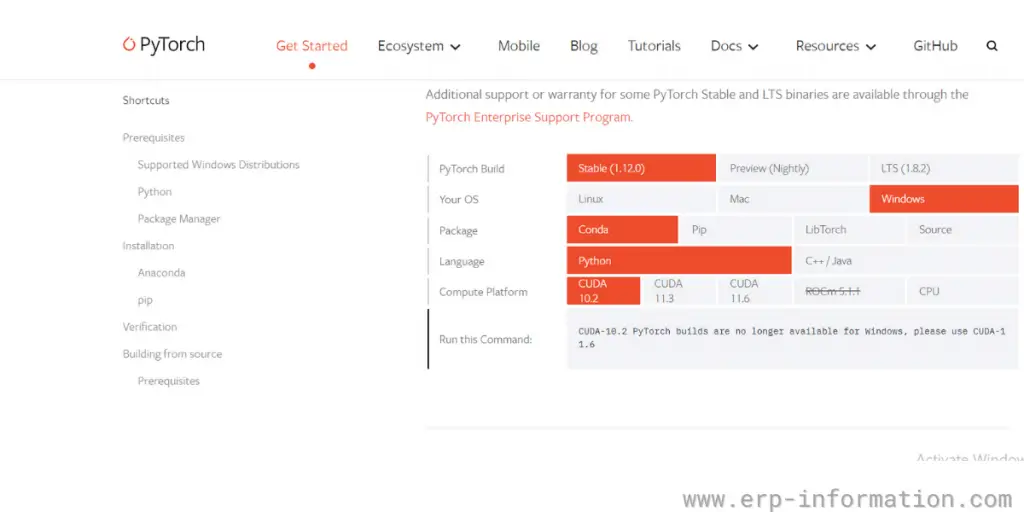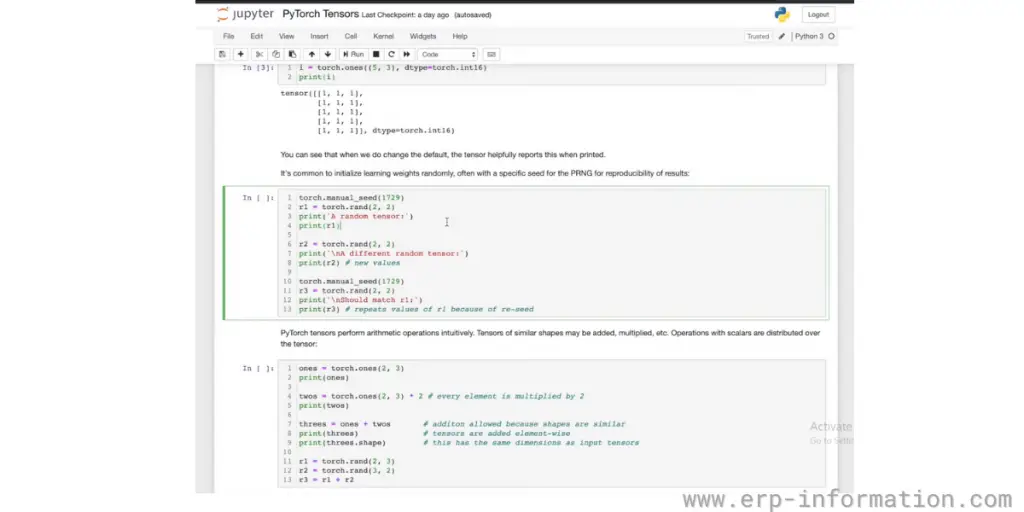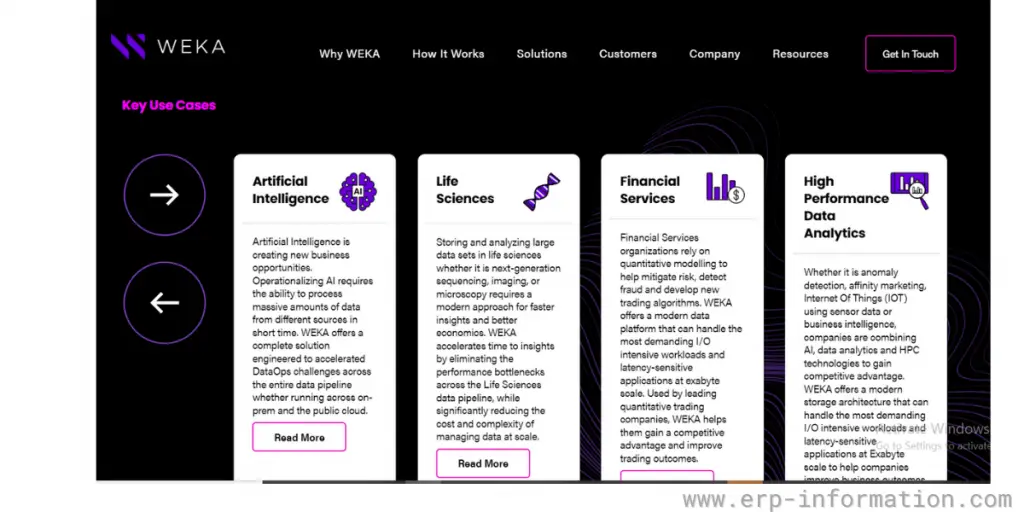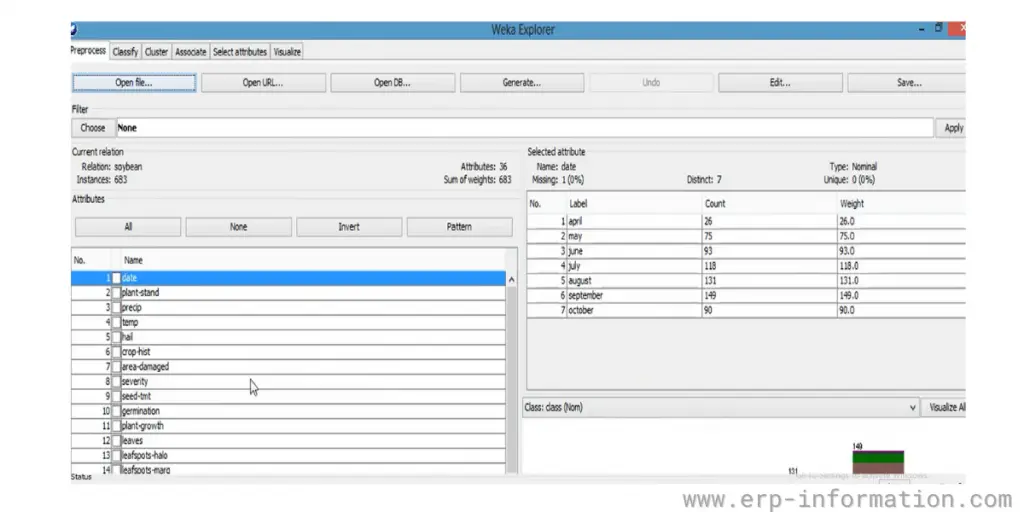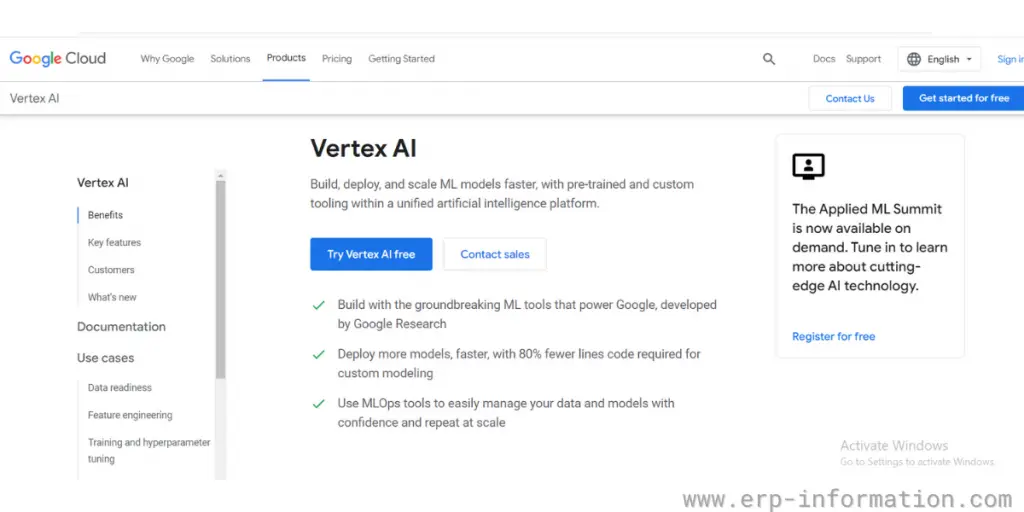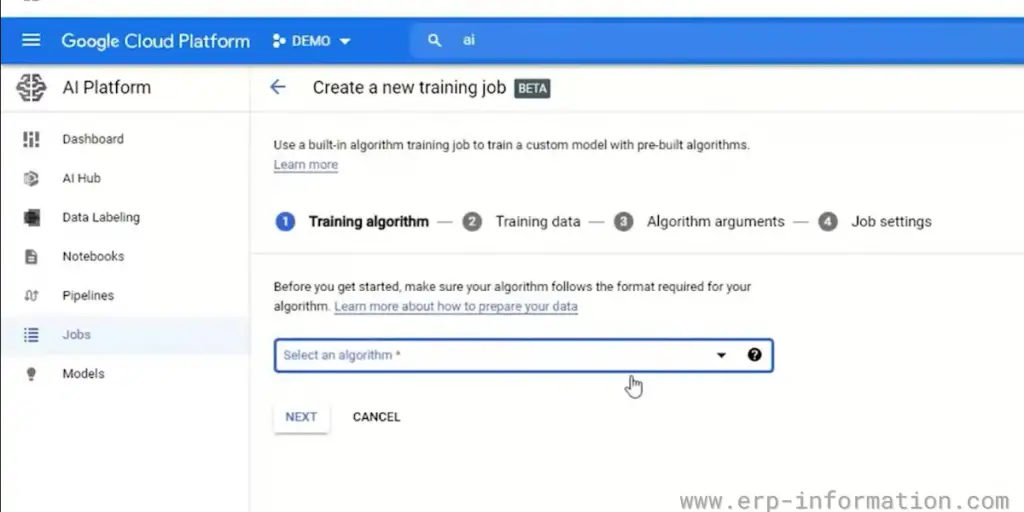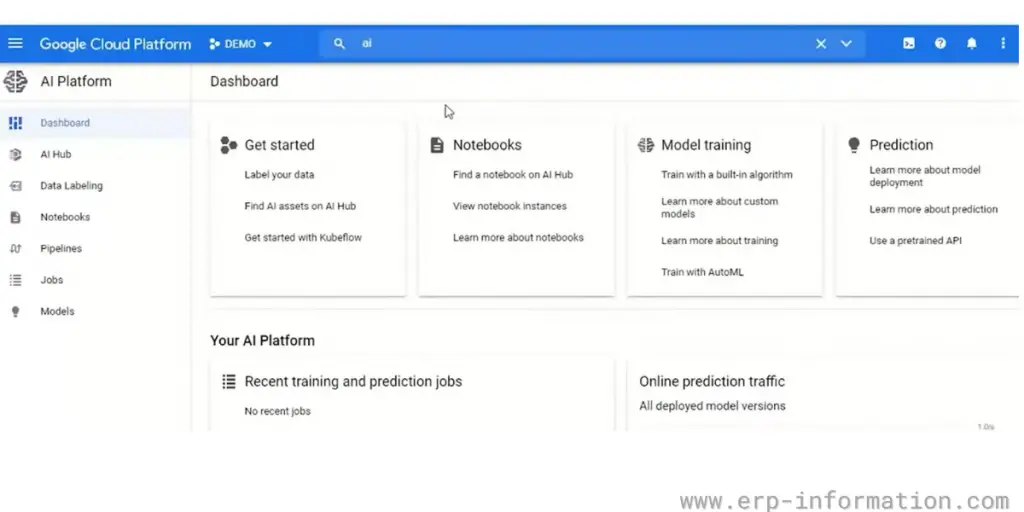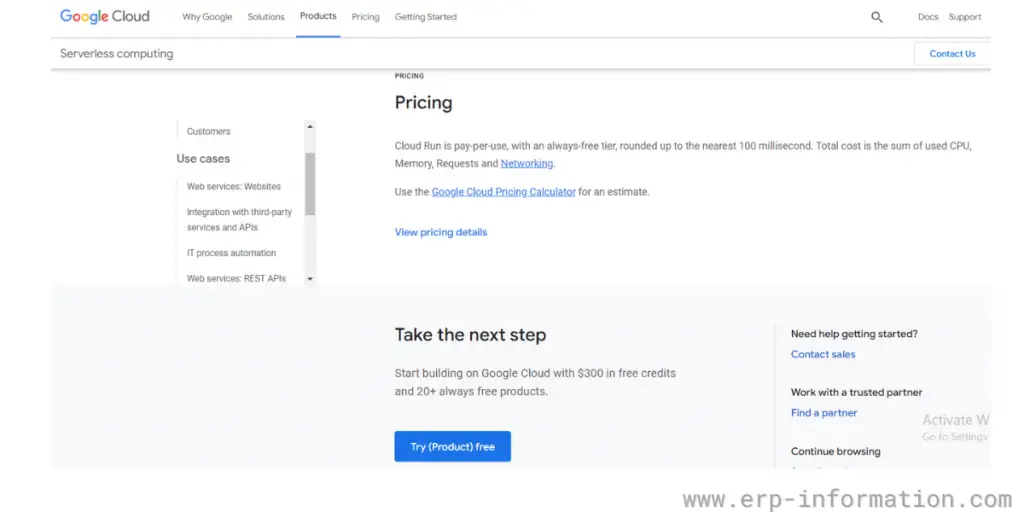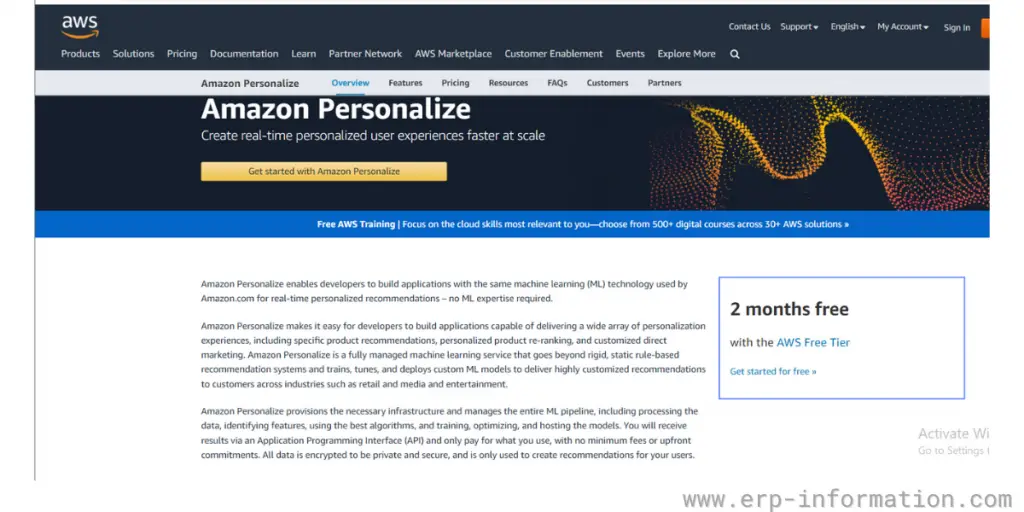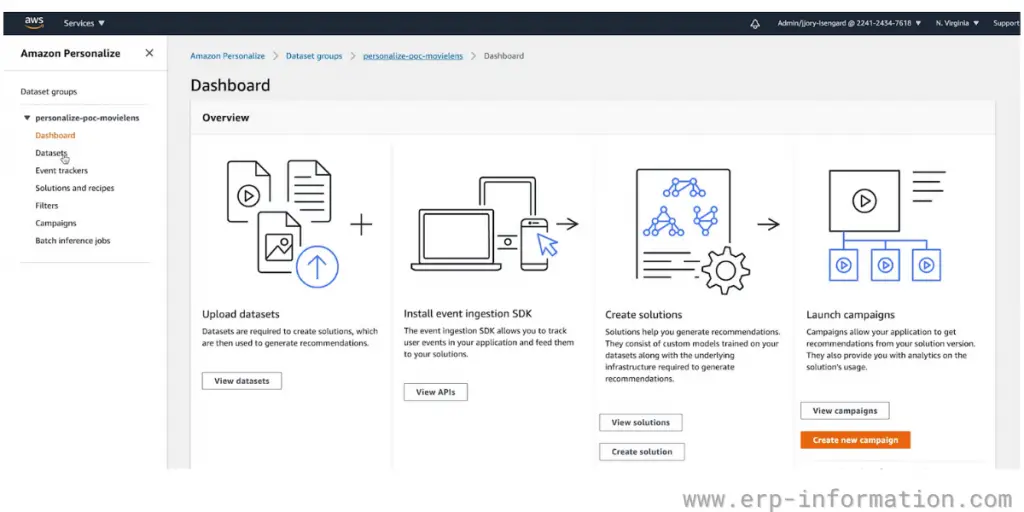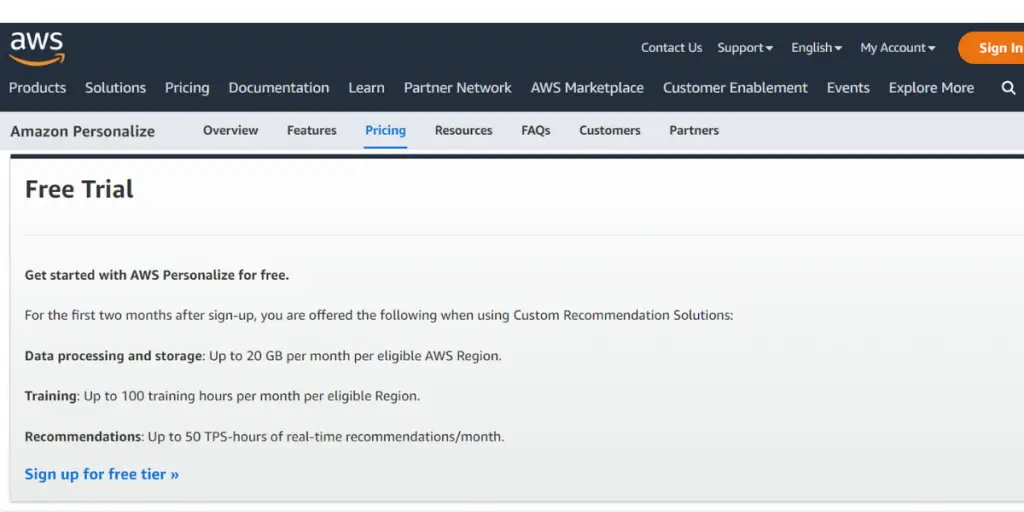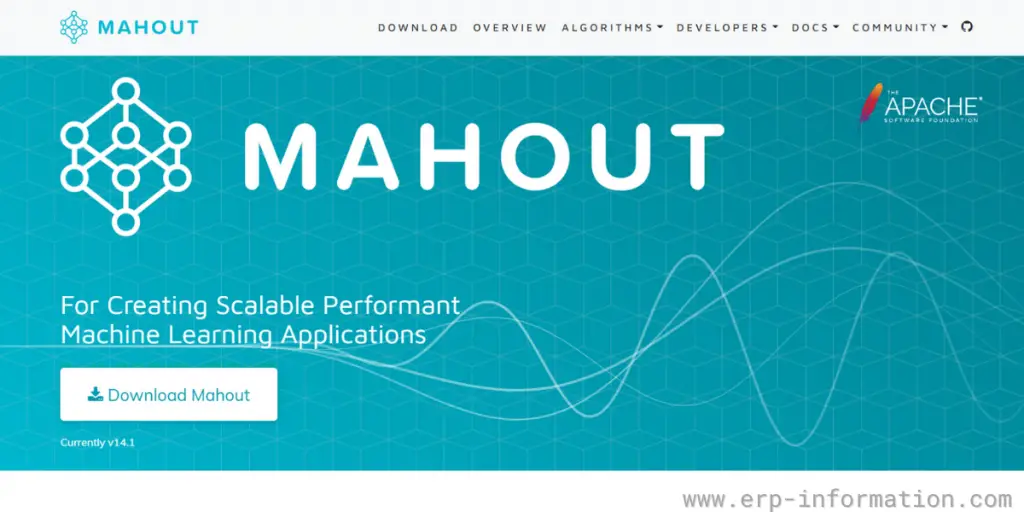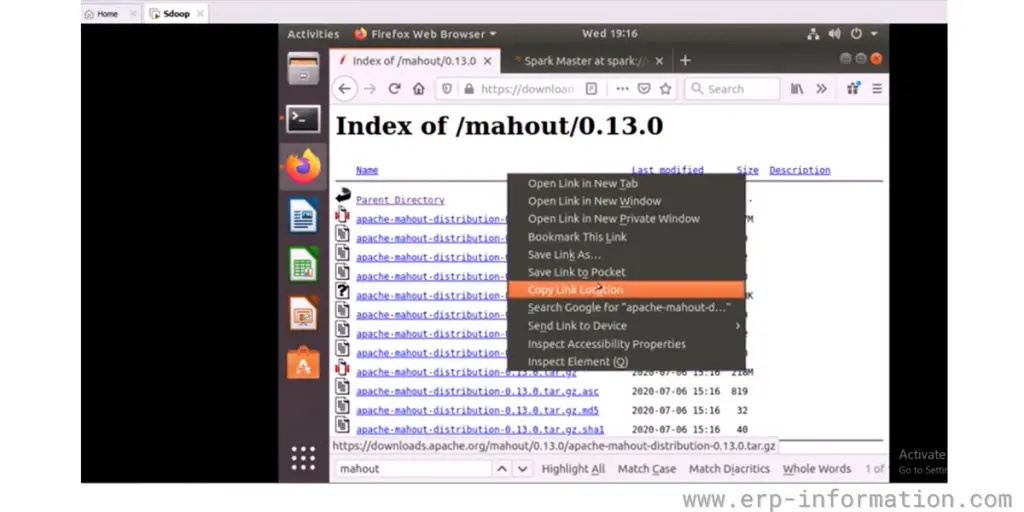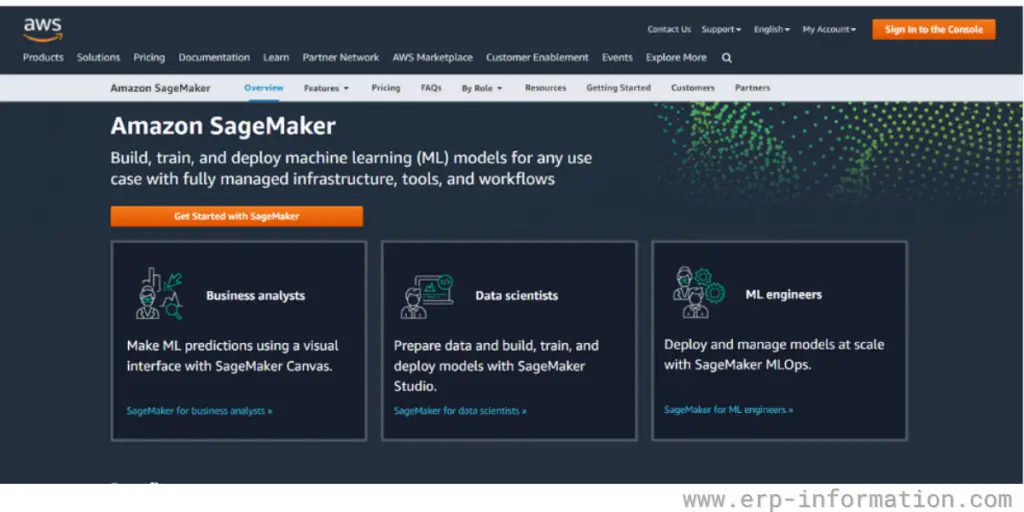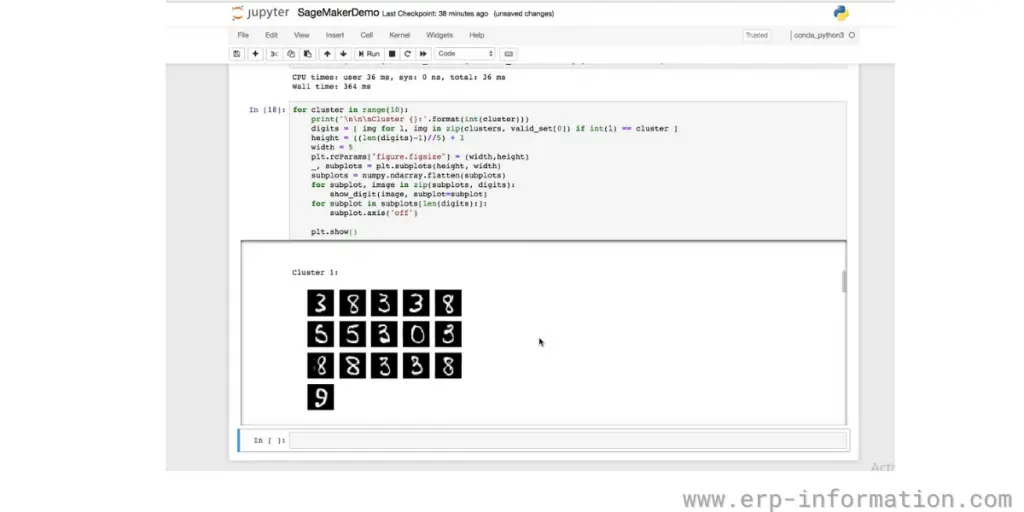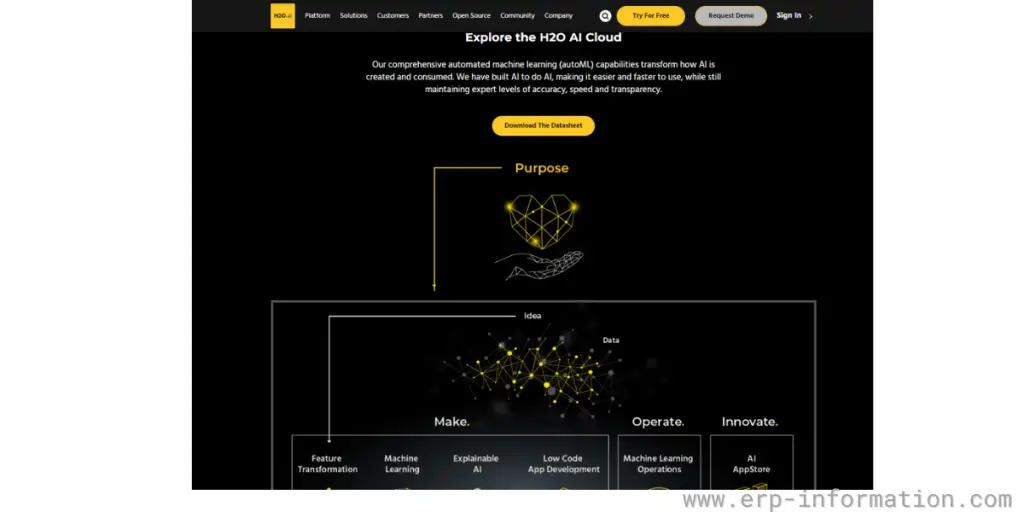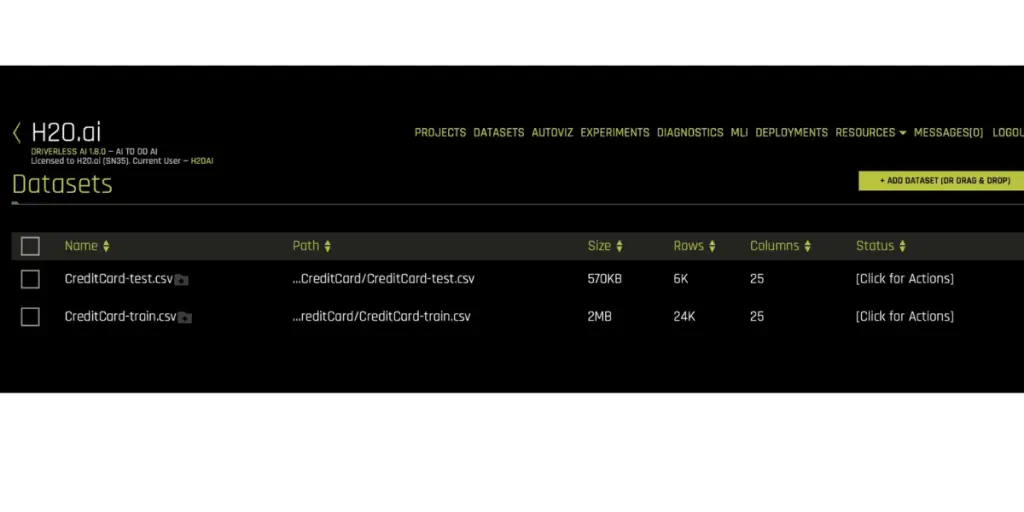You may hear a lot about machine learning lately, and you’re keen to learn more, but where do you start?
Even though you have experience with machine learning, many software options are available, and choosing from them can be challenging.
In this blog post, we’ll give you an overview of the ten best machine learning software options that help you to make an informed decision about which is right for you.
What is Machine Learning Software?
Machine learning software is artificial intelligence (AI) software that enables computers to learn from data without being explicitly programmed. Instead, it provides algorithms, APIs (application programming interfaces), and tools to allow developers to create software.
Typical ML software applications include image recognition, predictive maintenance, fraud detection, and demand forecasting.
Here is a list of the ten best machine learning software tools.
1. Scikit Learn
Scikit-learn is an open-source machine learning library for Python language. It contains various algorithms for data mining and predictive modeling, including support for deep learning and artificial neural networks.
It has been used in several real-world applications, including predicting the outcomes of elections and detecting fraudulent credit card transactions.
Features
- Classification
- Regression
- Clustering
- Preprocessing
- Model selection
- Dimensionality reduction
Screenshot of Scikit Learn
Pricing
This software is entirely free.
Likes
- It provided good documentation that helps to apply algorithms when you are stuck.
- It provides an inbuilt dataset for practices.
Dislikes
- Deep learning algorithms not available
- The clip is not elaborative
Other details
| Platform | Linux, Mac OS, Windows |
| Programming languages | Python, Cython, C, C++ |
User opinion
Scikit-learn is a powerful machine learning software widely used in the industry. It is open-source and free to use, making it a popular choice for beginners. However, it is also powerful enough to be used in more complex applications.
2. TensorFlow
TensorFlow is one of the most popular free open-source software libraries for machine learning and data science.
It provides various deep-understanding tools, including neural networks, convolutional nets, and recurrent networks. TensorFlow also supports reinforcement learning and generative adversarial networks.
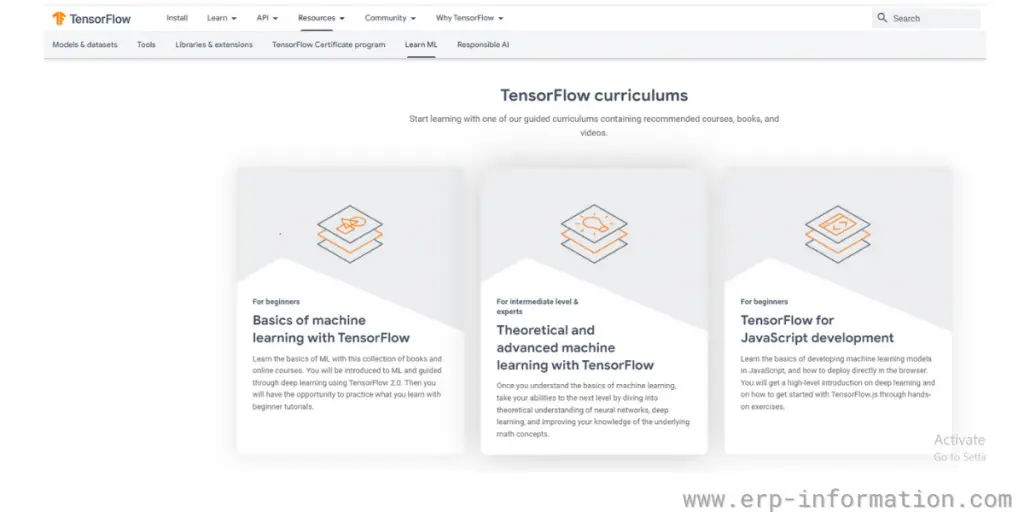
Features
- Symbolic math library
- Dataflow programming library
- Differentiable programming
- Statistical machine learning
Screenshot of TensorFlow
Pricing
It is entirely free.
Likes
- Easy to install
- It provides more resources that help to learn.
- This software is flexible
- TensorFlow’s functional API provides a powerful and versatile tool for building and training deep learning models of varying complexity
- It can utilize multiple CPU cores simultaneously to accelerate the training of machine-learning models
- It offers a comprehensive suite of state-of-the-art algorithms specifically designed for convolutional neural network models.
Dislikes
- It does not provide control flow operations and loop functions.
- It demands high computational power and a powerful GPU
- TensorFlow could benefit from further development in memory management strategies.
- The abundance of overlapping methods in TensorFlow 1 and 2 can hinder code customization for research projects.
Other details
| Platform | Linux, Mac Os, Windows |
| Programming languages | Python, C++, CUDA |
User opinion
TensorFlow is an excellent choice for people who want to learn more about machine learning. Additionally, TensorFlow is supported by a large community of developers, so you can find help if you need it.
3. Anaconda
Anaconda is one of the most famous Python data science platforms. It has many data accuracy analytics, machine learning, and scientific computing features.
Features
- Predictive modeling
- Deep learning models
- Library for Machine Learning Algorithms
- Managing Data
Screenshot of Anaconda
Pricing
It offers a free version.
- Pro – Charges $25/monthly per user and $250/year per user
- Business – Charges $75/monthly per user and $750/year per user
- Enterprise – Need to contact vendor
Likes
- The free version is available with basic features.
- It allows you to create multiple virtual environments.
Dislikes
- It is not easy to use at the beginning
- Start-up time is low
- This software’s interface offers a limited selection of themes.
- This software is a heavy tool and that’s why it sometimes lags in getting opened
- Anaconda’s memory requirements exceed the capabilities of some low-end laptops, leading to performance issues and device freezes
Other details
| Platform | Mac, Windows, Linux |
| Programming language | Python |
User opinion
Anaconda is an easy-to-use software with many features that make it an excellent option for getting into machine learning.
4. PyTorch
PyTorch is open-source software for machine learning libraries based on the Torch library. It offers various features, such as support for multiple processors, integrated graphics processing units, and a wide range of applications.
Additionally, it is available on both Windows and Linux operating systems.
Features
- Autograd Module
- Optim Module
- NN Module
Screenshot of PyTorch
Pricing
It is entirely free of cost.
Likes
- It is an optimized framework for deep learning
- It provides good documentation
Dislikes
- Not suitable for a small amount of data
- Integrate with another application is difficult
Other details
| Platform | Linux, Mac Os, Windows |
| Programming language | Python, C++, CUDA |
User opinion
PyTorch’s open-source platform gives you the freedom to implement your ideas and experiment with them quickly.
This is one of the main reasons many experts consider it the best ML software. Apart from that, PyTorch also provides excellent documentation and tutorials which can help you get started quickly.
5. Weka
Weka is a software suite containing a variety of tools for data mining, including machine learning, preprocessing, classification, regression, visualization, and more.
It is open-source software released under the GNU (General Public License). In addition, Weka is written in Java, so it can run on any platform that supports Java.
Features
- Data preparation
- Classification
- Regression
- Clustering
- Visualization
Screenshot of Weka
Pricing
It is entirely free.
Likes
- Provides free online courses
- Students can easily understand the software
Dislikes
- Documentation is very less
Other details
| Platform | Linux, Mac OS, Windows |
| Programming language | Java |
User opinion
Weka is open-source, free-to-use software and has various features. It also has a very active community, so you can get help if you need it.
6. Google Cloud AI Platform
Google’s cloud AI platform is a cloud-based comprehensive suite of tools for data analysis, machine learning, and deep learning. In addition, it provides components like training, prediction, and data labeling services.
Features
- A unified UI for all ML workflow
- Pre-trained APIs for vision, video, and natural language
- End-to-end integration
- Support for all open-source frameworks
- Free built algorithms
Some screenshots of Google Cloud AI Platform
Pricing
- You need to contact the vendor to get a quote.
- A free trial is available.
- Customers will get $300 in free credits and 20+ products for free.
Likes
- You can create new MI models easily
- All AI services are available in machine learning model training
Dislikes
- UI navigation is challenging
- No frequent updation of training and document resources
- High-speed internet required
- It is hard to adapt cloud environment
- Difficult to use for new users
- Pricing is more
Other details
| Support | Email/Help Desk, Chat, Phone Support, Knowledge Base, FAQs/Forum |
| Training | Live Online, Documentation, Videos, In Person, Webinars |
| Deployment | Cloud, SaaS, Web-based |
| Programming language | Java, C, Python Front-end languages like HTML, CSS, Javascript |
User opinion
Google Cloud AI Platform offers excellent flexibility and scalability. It supports open-source frameworks. Additionally, it provides pre-trained APIs for vision, video, and natural language processing, making it a perfect choice for deep learning applications.
More about the Google Cloud AI platform
7. Amazon Personalize
Amazon Personalize is a machine learning tool that allows you to train, deploy, and manage your custom machine learning models. It offers a wide range of features and flexibility, making it a perfect choice for businesses of all sizes.
Features
- Automatic loading and inspection of data
- Allows you to select the correct algorithm
- Provides accurate metrics
Screenshot of Amazon Personalize
Pricing
A free trial is available.
It does not offer a minimum fee or upfront fee.
Using its pricing calculator, you can estimate your price.
Other details
| Deployment | Cloud, SaaS, Web-based |
| Supported languages | Spanish, German, French, Portuguese, Chinese, and Japanese |
Like
- It is very easy to use for newcomers
Dislike
- Sometimes the program will be very slow
User opinion
Amazon Personalize is a machine learning software offered by Amazon. It is a part of Amazon Web Services, allowing developers to train and deploy machine learning models.
Amazon Personalize is an excellent tool for businesses that want to take advantage of machine learning without investing much in their infrastructure. It is also very easy to use, making it a good choice for businesses with little experience with machine learning.
8. Apache Mahout
Apache Mahout is a distributed machine learning framework. It is used to build machine learning applications and includes several clustering, classification, and collaborative filtering algorithms.
Features
- Distributed linear algebra
- Classification
- Clustering
- Regression
- Preprocessors
Screenshot of Apache Mahout
Pricing
It is entirely free.
Like
- It is a scalable machine learning libraries.
Dislikes
- The visualization part is not so good
- Unavailability of scientific calculation libraries
Other details
| Platform | Cross-platform |
| Programming languages | Java, Scala |
User opinion
Apache Mahout is a top machine learning software for predictive analytics, Collaborative Filtering, Clustering, and Frequent Pattern Mining. It offers an extensive suite of data mining algorithms and the ability to create custom algorithms. Mahout also provides a platform for deploying machine learning applications.
9. Amazon Sagemaker
Amazon SageMaker is a machine learning platform enabling you to quickly build, train, and deploy models at scale. It makes it easy to choose the correct algorithm and framework, get your data ready, and configure your deployment model.
Features
- Predictive modeling
- Visualization
- Model Training
- ML algorithm library
Screenshot of Amazon Sagemaker
Pricing
A free version is available. Contact the vendor to get more information
Likes
- Helps small projects by reducing the time with ML models
- No need to have prior knowledge while working with it
- Has user-friendly interface
Dislike
- Fewer customization options
- It takes data in Excel format and then has to save it in an S3 bucket.
- It doesn’t have extensive data for images.
- Not possible to create a virtual environment within Sagemaker
- It is Expensive
Other details
| Deployment | Cloud, SaaS, Web-based |
| Programming language | Python, JavaScript, Ruby, Java |
User opinion
Amazon Sagemaker is easy to use and has a lot of capabilities that make it a powerful choice for businesses or individual users who want to get started with machine learning.
10. H2O.ai
H2O.ai is an open-source machine learning software tool. It is best suited for enterprises for fraud detection and advanced analytics.
Features
- Ml algorithm library
- Model training
- Natural language processing
- Visualization
- Statistical modeling
- Predictive Modeling
- Document classification
Some screenshots of H20.ai
Pricing
No free version; for pricing details, contact the vendor.
Like
- It runs on low-memory
Dislike
- Lack of accountability and management
- Lack of documentation
- The engineering feature is not available
- It is quite expensive
- Guidelines and documentation are not sufficient
Other details
| Supported device | Desktop – Windows |
| Platform | Windows |
| Programming language | R, Python |
| Training | Documentation, In-Person, Webinars |
User opinion
H2O.ai offers excellent features and user experience. In addition, the company is strongly committed to its community and continuously updates its software with new features and bug fixes. Overall, H2O.ai is an excellent choice for anyone looking for machine learning software.
FAQs
What are the types of machine learning?
Three types of machine learning are supervised, unsupervised, and reinforcement learning.
Supervised learning is where the computer is given a set of training data and is then taught how to make predictions.
Unsupervised learning is where the computer is given data but not told what to do with it, and it must learn from the data itself.
Reinforcement learning is where the computer is given a set of rules and must learn from its own experience to optimize its performance.
What are some popular machine learning algorithms?
There are many popular machine learning algorithms, but some of the most common include support vector machines, decision trees, and artificial neural networks.
Conclusion
Every machine learning software is constantly evolving and changing. As new versions are released, different software becomes the best option for various purposes.
We will update the list of the ten best ML tools we’ve provided to ensure you have the most accurate information possible. We highly recommend that you check back often to see if any changes in the best machine learning software of 2026.
Reference
